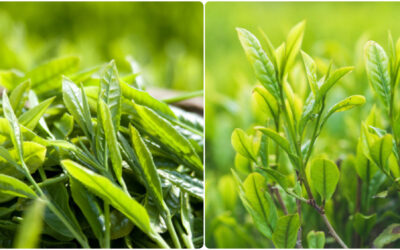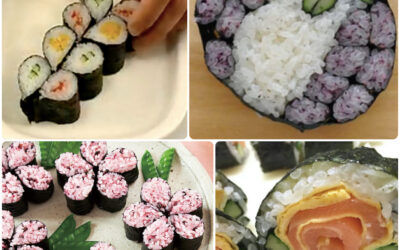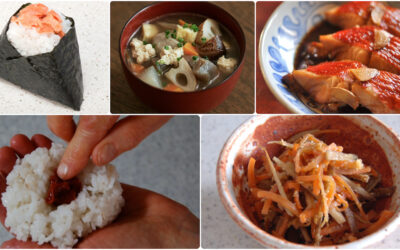
Kitchen Culture Cooking Club
EXPLORE and PRACTICE Japanese cooking in your own kitchenAbout Kitchen Culture Cooking Club
Welcome to the Kitchen Culture Cooking Club, a community space providing encouragement to those who want to EXPLORE and PRACTICE Japan’s washoku wisdom in their own kitchens.
To facilitate this, themed projects will be posted to this page periodically. Project Assignments and links to relevant reference material stored on this site will be posted to this page. Anyone, anywhere in the world, with a sincere interest in Japanese food culture is welcome to browse the contents of this page and then replicate the themed project in their own kitchen.
For those who wish to display-and-discuss their projects with like-minded people, I invite you to join the KITCHEN CULTURE Cooking Club Facebook Group (formerly the TSUDOI Project), an interactive community space.
PROJECT Noodle-Slurping

NOODLE-SLURPING
Anyone who has ever spent time in Japan, or regularly eats at Japanese restaurants, knows (all too well) the sound of slurping. Noodles, for sure, but soup, tea and other liquids, too. Although noodles, soup and beverages are part of every food culture, making noise when consuming them is considered rude – except in Japan.
It is unclear just when the custom of noodle-slurping first appeared in Japan, but it is humorously, noisily depicted in a well-known rakugo story, Toki Soba, that has been performed for more than 400 years (rakugo is Japan’s comic storytelling tradition using pantomime).
When asked why slurping is the best way to eat noodles, most Japanese will offer “reasons” such as the speed and efficiency of slurping in getting noodles from bowl to mouth (with chopsticks), cooling hot soup at the same time. Another reason given is heighted enjoyment of flavor and aroma as noodles and soup are drawn into the mouth by slurping.
The verb susuru (to slurp) is written in kanji with the mouth radical (the vertical rectangle on the left) and 4 mata (on the right) meaning “again” (four times).

Learning to slurp (properly)
I envy those who slurp in style with an appropriate amount of gusto. After all these years I’m still not able to slurp noodles without getting hiccups. The advice I have been offered is to imagine gently blowing bubbles, but in reverse.
Visit the December, 2024 KITCHEN CULTURE blog: Year-Passing SOBA; New Year-Welcoming UDON for recipes and information on these noodle-eating customs.
Download a copy of the December, 2024 newsletter, Year-End Soba, Start-the-Year Udon
Recipes and Resources
Stock (Dashi)
Dashi stock is essential to making soups and simmered or stewed dishes. Dashi is also used when making many egg dishes and all sorts of sauces, dips and dressings. Using good dashi will make a noticeable difference in the outcome of so many dishes you prepare.
Click to download recipes for (vegan) Kelp Alone Stock or Standard Sea Stock + Smoky Sea Stock
How to Cook Rice
In Japanese, the word for cooked rice, ご飯 GOHAN, is the same as the word for a meal, ご飯 GOHAN. Indeed rice is central to the meal. Download the Rice with Mixed Grains recipe.
How to Prepare Sushi Rice
Sushi dishes are made with rice that has been seasoned (with sweetened vinegar) AFTER being cooked. Download the Classic Sushi Rice recipe.
Quick Pickles
The Japanese enjoy a wide variety of tsukémono pickles, many can be assembled quickly and are ready to eat within a short time.
Download a recipe for Quick-Fix Hakusai Cabbage.
Shaved Ice
Long before refrigeration was invented, people around the world went to great lengths to keep food chilled. The world’s earliest written record of such efforts is an Iranian inscription dating back to 1700 BC that describes deep pits in which snow and ice was stored...
PROJECT New Tea
This PROJECT is about brewing and enjoying new tea, called shincha 新茶 in Japanese. Shincha teas are available online and in specialty shops around the world. Most of the commercial green tea crop in Japan is grown in Shizuoka, southwest of Tokyo, though Uji (near...
PROJECT Flower-Inspired Rolled Sushi
Use your imagination to create rolled sushi inspired by flowers. To get you started, here are some basic recipes: This recipe for CLASSIC SUSHI MESHI includes instructions on cooking and seasoning rice, and information on the wooden tub in which the cooked rice is...
PROJECT Red Foods and Tableware
Generations of Japanese have been well nourished daily by modest meals following a simple pattern: soup, rice, and a few other dishes. This easy-to-compose menu model called ichi jū san sai (一汁三菜 ) that satisfies hunger while fulfilling nutritional needs. The soup...




